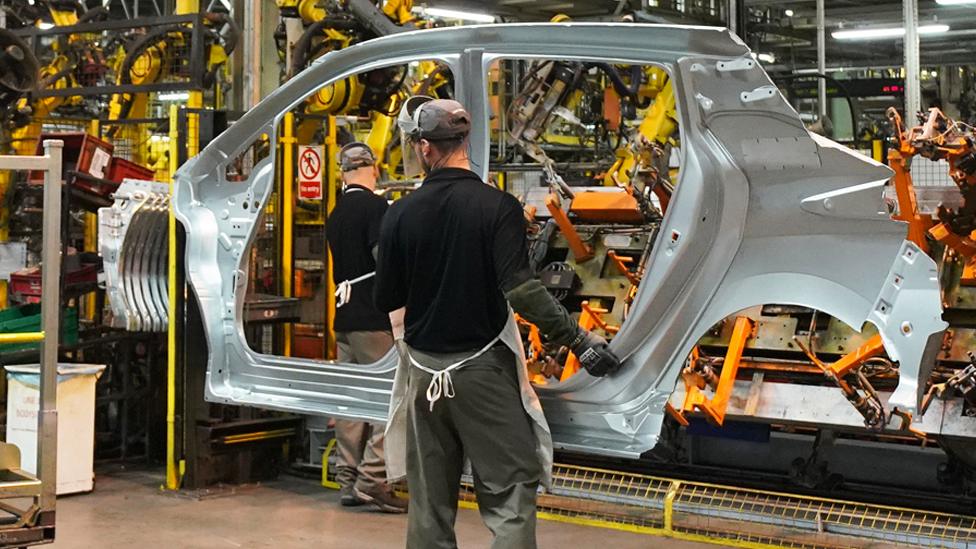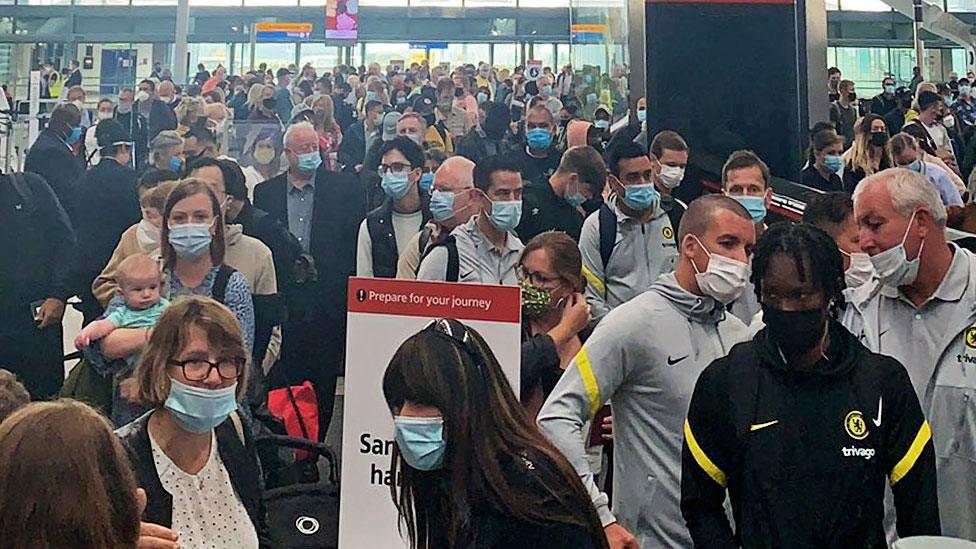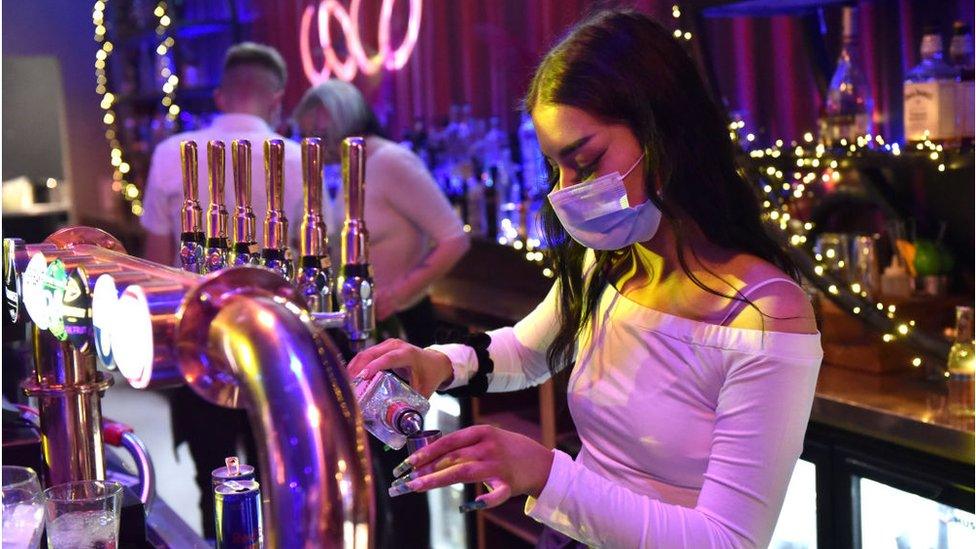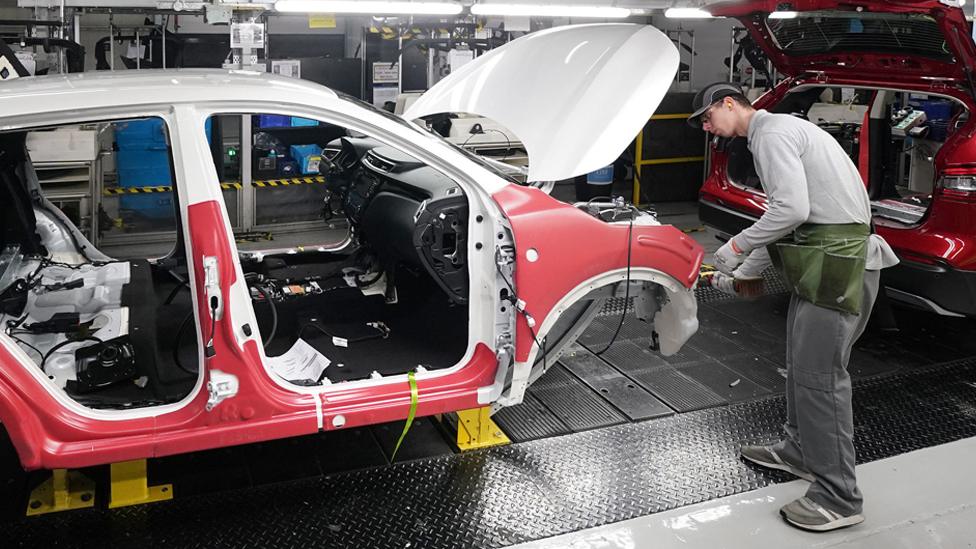Nissan and Rolls-Royce hit as staff forced to isolate
- Published
- comments

Car firms Nissan and Rolls-Royce have warned production could be affected due to high numbers of staff being told to isolate by the NHS Test and Trace app.
It is understood that up to 900 workers at Nissan's Sunderland car plant have been sent home from the plant, more than 10% of the total workforce.
Local case numbers have been rising sharply, making it difficult to avoid disruption, say sources.
Rolls-Royce said it may have to halve production at its Goodwood factory.
A spokesman for luxury car-maker said that the number of employees at its West Sussex plant forced to self-isolate after being notified by the Test and Trace app has been rising, and it is watching the situation carefully.
He said that while the situation is not yet critical, Rolls Royce would have to cut one of the two shifts at the factory if the numbers continued to rise.
In Sunderland, where Nissan's factory is based,955 Covid cases per 100,000 people were recorded in the week to 10 July.
In contrast, the average area in England had 287.
The problems at the Japanese carmaker come amid increasing evidence of widespread absenteeism at firms because of workers who have been "pinged" by the NHS app.
Anyone alerted who has come into contact with an infected person has to self-isolate for 10 days.
Earlier this week, lengthy queues built up at security in Heathrow airport because of the absence of more than 100 staff instructed to self-isolate by the app.
The problem is especially acute in restaurants and pubs, with UK Hospitality boss Kate Nicholls saying that in some cases, up to one-third of staff have been forced to stay at home.
Ms Nicholls has said testing could replace isolation for people who have been in contact with a Covid patient.
Nissan said: "Production in certain areas of the plant has been adjusted as we manage a number of staff being required to self-isolate following close contact with Covid-19.
"The well-being of our team is our number one priority and we remain confident in the rigorous safety controls we have on site."
'Extremely worrying'
Make UK, which represents manufacturers, said an increasing number of companies had reported that self-isolation was impacting on production.
"For some companies up to 20% of the workforce is now isolating," said boss Stephen Phipson. "Government must re-visit the August date as an immediate priority as the situation is likely to get far worse with the lifting of restrictions next week."
Unite the union said management at the plant had "done brilliantly" so far in preventing production lines shutting by moving staff around, but things were on the limit now.
More widely, the union said that it had been told of many cases across industry where a big increase in the number of staff being advised to self-isolate by the NHS app was affecting production lines.
"The reports Unite is receiving from our members and their employers are extremely worrying. It is not an exaggeration to say factories are on the verge of shutting and that at some sites hundreds of staff are off work," said Unite assistant general secretary Steve Turner.
"One major engine supplier has said that so many people are absent and orders so far behind that work may be permanently relocated to China.
"The government absolutely must not wait until August 16 to come up with a solution to significantly reduce the amount of people self-isolating unnecessarily."

What are your rights if asked to self-isolate?
Currently, if you are required to self-isolate, your employer cannot force you to come into work, says Emma Bartlett, an employment lawyer at CM Murray.
Doing so would not only breach your rights but those of your fellow workers in terms of health and safety.
As you isolate you may be entitled to Statutory Sick Pay, which is worth £96.35 a week, or more if your employer has a sick pay scheme.
A £500 grant is also available in England to people on low incomes who have to self-isolate. This includes parents who can't work because their child has to self-isolate.

Related topics
- Published12 July 2021

- Published7 July 2021

- Published1 July 2021
